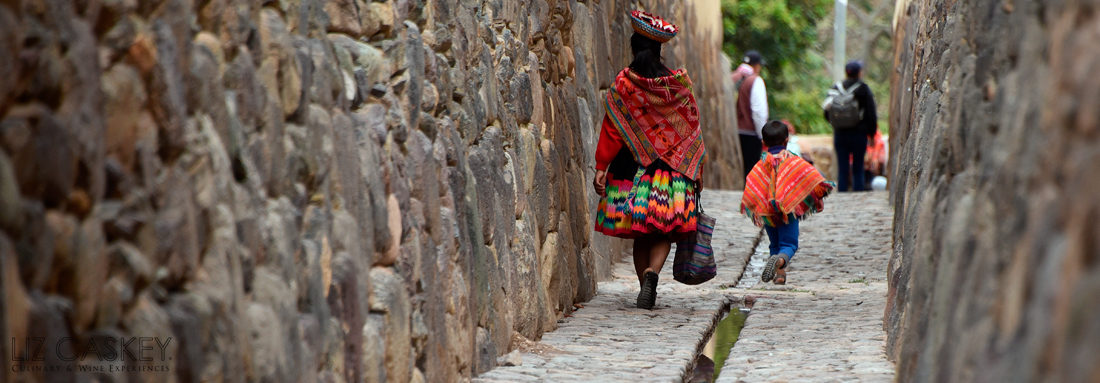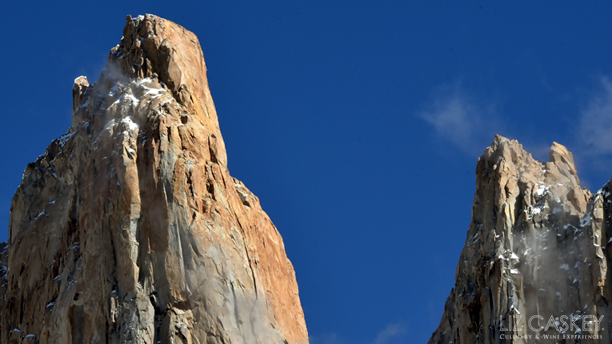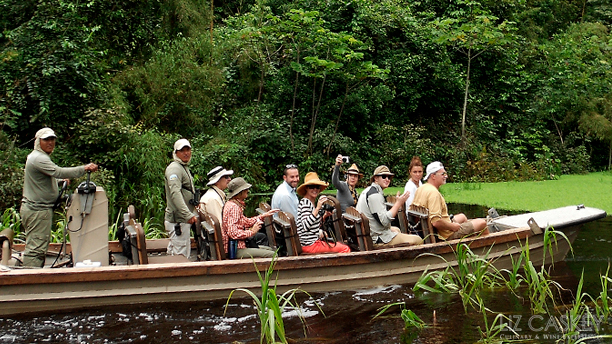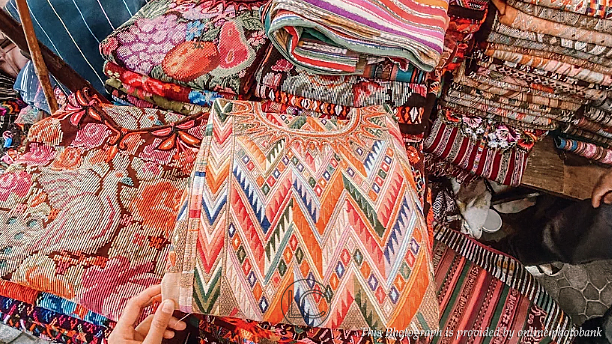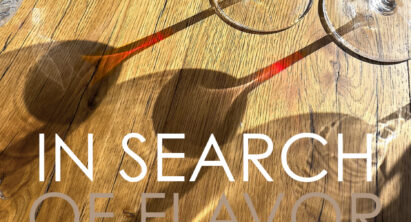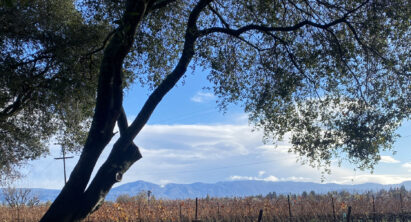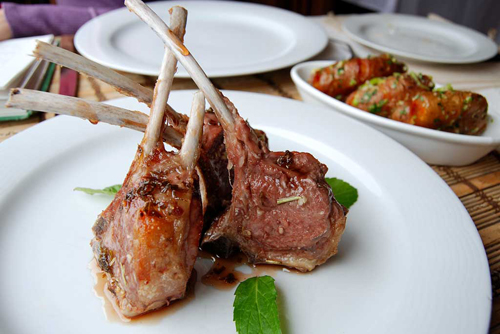
Freshly arrived in the Patagonian outpost town of Puerto Natales, after a full day’s schlep from Santiago (4 hours flying, 3 hours driving from Punta Arenas), we are famished. Desperately seeking lunch, our hotel, Indigo , recommends a tasty new place up the street—Afrigonia. We leave the hotel bundled up. Early fall in the Magallanes province is blustery with rain or snow and breaks of sunshine. The three blocks from the hotel to restaurant seem eternal. The blustery winds blowing off the Last Hope Sound go straight through to my bones and find every tiny crevice of bare skin.
Thankfully, the restaurant is warm and cozy—like a culinary refuge. The owners greet us and promptly give us the low down on the odd name and history. Afrigonia is a restaurant born of a “fusion”, err…relationship, between chef Kamal Nawaz of Zambia and Nathalie Reffer, a Chilean native. They met in Africa and decided to relocate back to the Chile–in far flung Puerto Natales—in October 2007 to open their restaurant.
I have absolutely no idea what Zamibian-Patagonian cuisine may be, but I am freaking hungry, so let’s order already. The first dish to is Cebiche Malindi. A twist on the classic ceviche, sashimi-grade salmon is tossed with chopped shallots, fresh tomato, and a sweet-and-tangy coconut milk-lime juice marinade with bits of mango. Exquisite. We also munch on tasty Mchuzi prawns. Mchuzi means sauteed in Swahili, and these plump shrimp are flash cooked with crunchy bean sprouts, spring onions, and pineapple.
For the main course, Francisco orders a perfectly cooked wild salmon. I give into my lamb fetish (love, love, love it) and order the grass-fed French-cut lamb chops. Given Zambia’s British Heritage, Kamal adds the much-loved traditional mint sauce. The lamb is pretty close to a religious experience. Cooked precisely to rare, each bite has a flowery, delicate flavor. Kamal explains that the lambs eat the natural grasses, coirón, which give the flesh a complex, delicious taste. I would definitely second that.
As he pours us another glass of the De Martino Syrah, he also shares some interesting local statistics like the ratio of sheep to humans is roughly 34:1 down here. Does that rival New Zealand?
I normally pass on sweets but since the chef is insisting, we graciously accept. He sends an “Afrimisú” and dark chocolate molten cake to the table. Although the chocolate is delectable, I would say the Afrimisú is most noteworthy. Instead of the traditional Marsala used, he adds Amarula, South Africa’s most popular liquer made from the wild Marula tree.
Kamal most definitely has the gift, and love, of cooking. The freshness of the ingredients is highlighted with a good balance of flavors and textures. All the dishes are harmonious. Combined with cheery service from his wife in the front of the house, the result is a gem of a restaurant. Definitely worth the detour on the way to Torres del Paine park.
